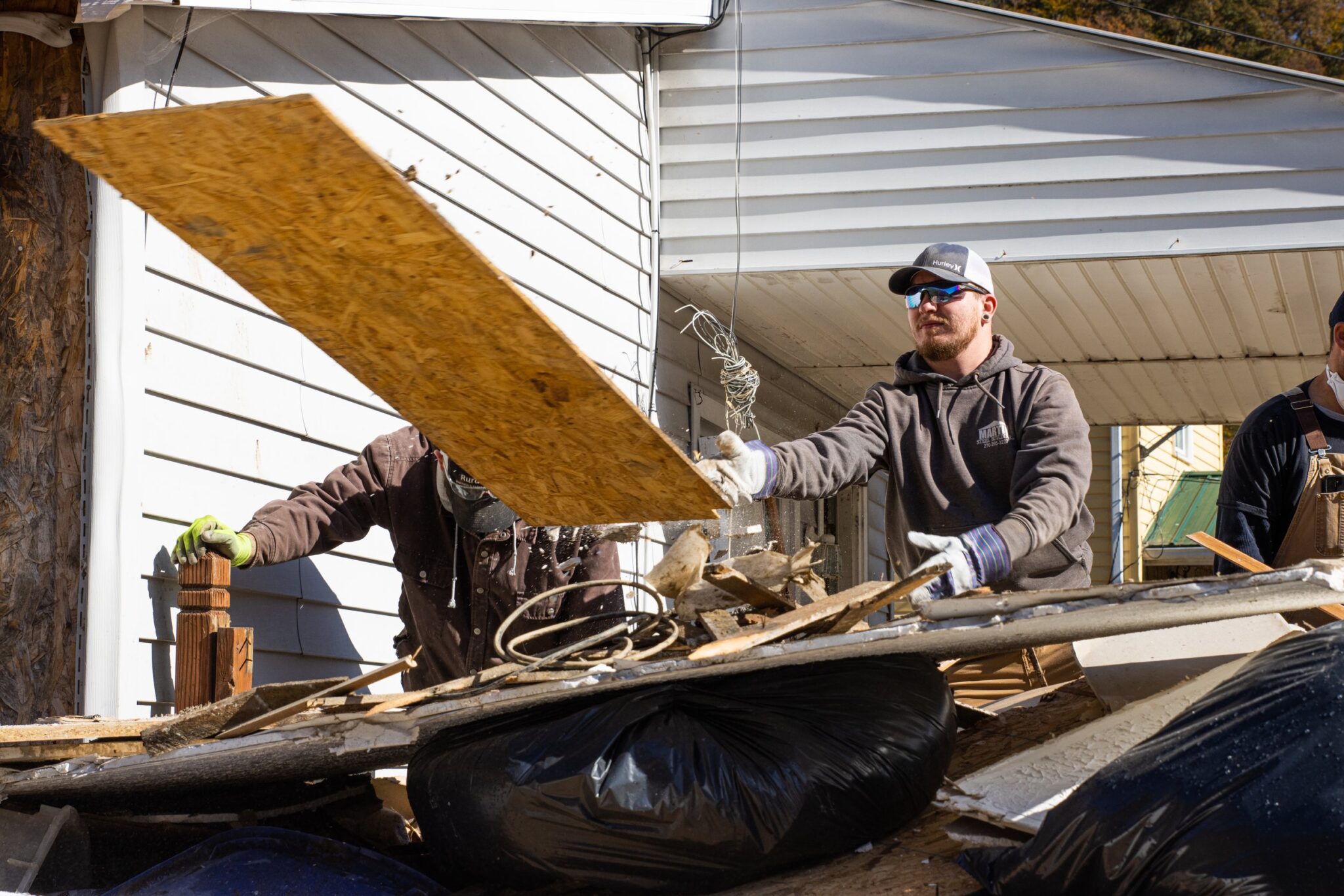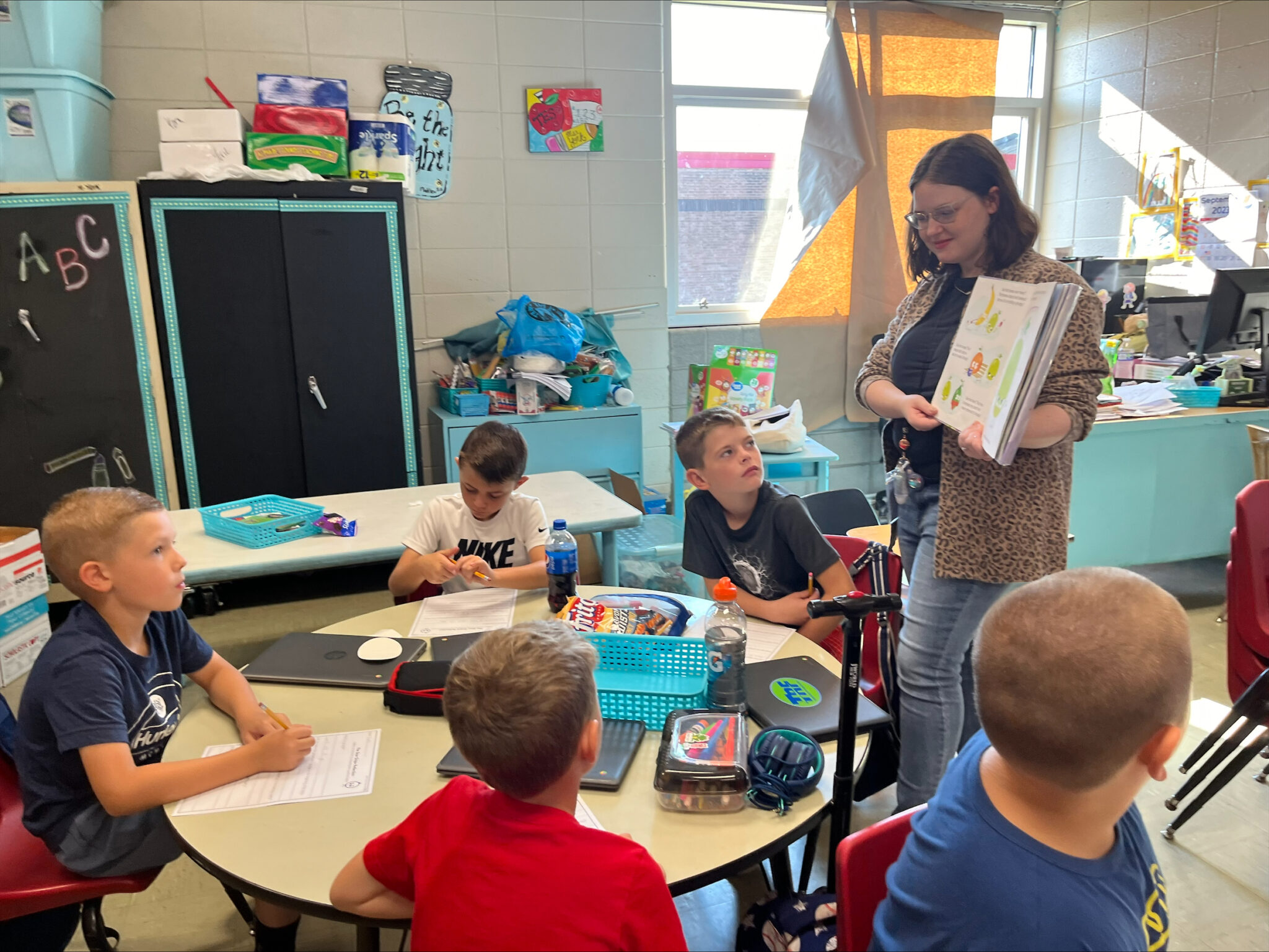Clear Vision, Bright Futures: Leslie County Schools Focus on Vision Issues
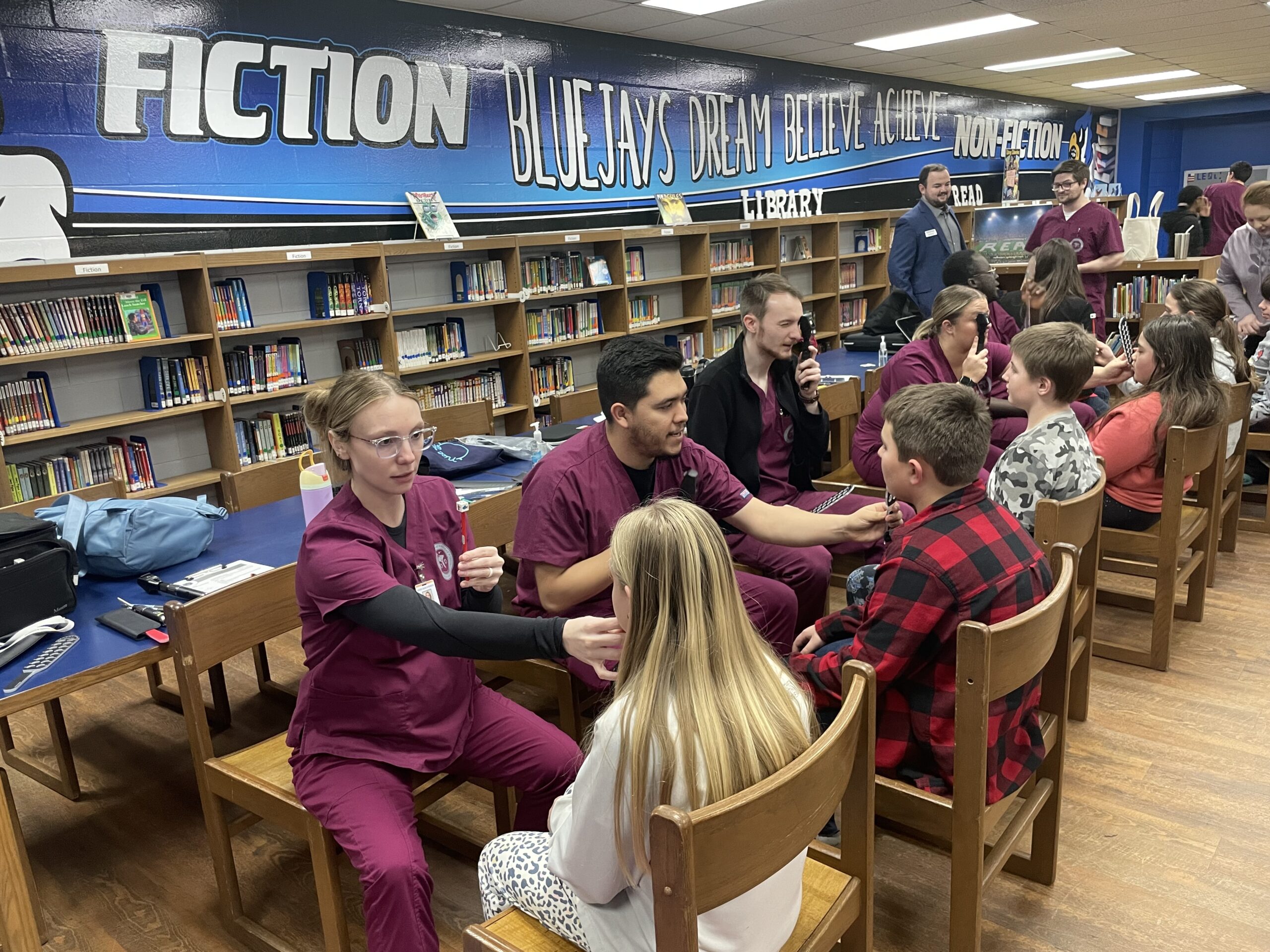
Leslie County, KY – During the last two weeks of school in Kentucky, all students in grades 3-8, 10, and 11 take the required Kentucky Summative Assessment (KSA). This important academic milestone, along with countless other assignments that help students scaffold learning for future success is much more difficult for those with undiagnosed vision issues.
Last month, Robert Roark, Project Director for the Partners for Rural Impact Full-Service Community Schools program at Leslie County Schools, invited Dr. Rachel Fitzgerald, OD, FAAO and Associate Professor of Optometry at the University of Pikeville, and her team of optometry students to perform vision screenings for local students in the third, fifth, eighth, and ninth grades. They completed 305 eye exams, 95 students failed.
Roark and his team of full-service community coordinators work with the schools and local dental offices to offer dental screenings for students each year. It was after this year’s screenings they realized they also needed to focus on vision.
“Students are required to get vision screenings before they enter pre-school or kindergarten,” said Roark. “But after that, they don’t have to get their vision checked again for school.”
Dr. Fitzgerald explains that routine vision screenings are important to determine if a child has developed a new vision problem such as the need for glasses, a lazy eye or eye turn, and any ocular health issues after starting school.
“The Kentucky College of Optometry (KYCO) vision screenings are performed by second-year or third-year optometry students and overseen by one of our pediatric optometrists,” said Dr. Fitzgerald. “While this screening does not constitute nor include a complete, dilated eye exam, this 15-to-20-minute vision screening will assess visual acuity, depth perception, color vision, eye alignment, refractive error, and ocular health.”
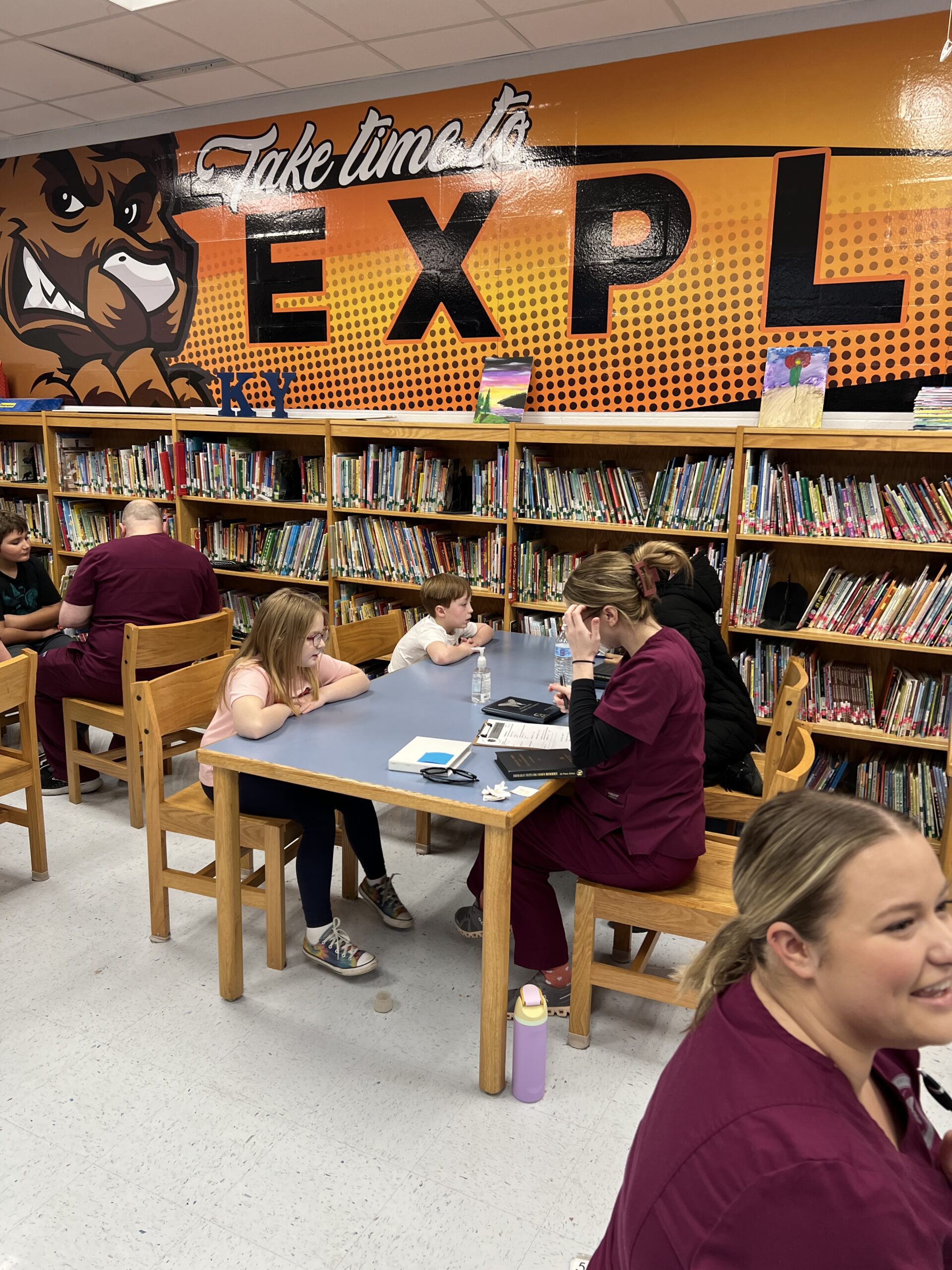
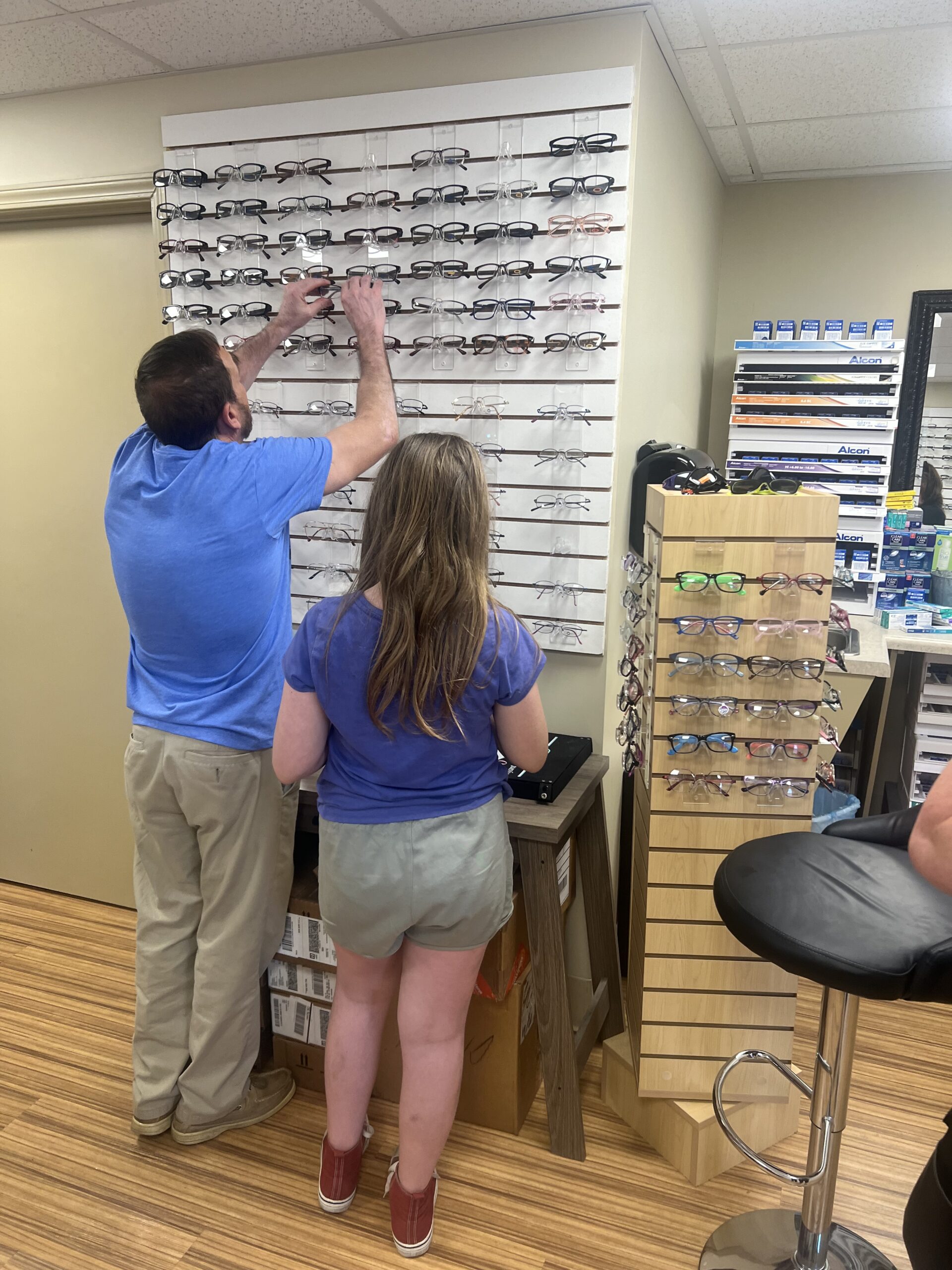
At the end of the screening, a complete report of the child’s findings is sent home to parents and an email with the overall results and recommendations is sent to the family resource directors.
“As an administrator, I witness the daily struggles our students face, often beyond their control, hindering their success in the classroom,” said Heather Gay, Mountain View Elementary Principal. “Offering services to eliminate these barriers is crucial, and when Robert Roark approached me about the University of Pikeville’s College of Optometry providing vision screenings for our students, I was overjoyed. Vision is essential for classroom success, and I hope this opportunity continues to expand.”
Since Fall 2017, the Kentucky College of Optometry has partnered with numerous school systems including Pike, Floyd, Leslie, Wolfe, Lee, and Rowan counties to provide vision screenings to third and fifth grade students. From 2017 to 2024, they have examined 5,839 elementary school students.
“The vision screenings were truly a blessing for our students,” said Michelle Wilson, Mountain View Elementary teacher. “Poor vision is an overlooked issue that affects many of them, hindering their performance in the classroom. The students and faculty from University of Pikeville were outstanding, and we deeply appreciate this program. It has been a game-changer for so many of our students and will have a profound impact on their academic success.”
Prior to the peak of the COVID-19 pandemic, the referral rate of their vision screenings was approximately 28 percent. This rate has since grown to approximately 36% for the past few years. According to Dr. Fitzgerald, this increase is likely due to multiple factors including access to care during COVID restrictions which limited early intervention, increased screentime, as well as improved identification with expansion of their vision screening program to more rural communities.
The Full-Service Community grant coordinators have contacted all families and guardians of the 95 students who did not pass the vision screen and accommodations have been made, if needed, for transportation to ensure the student receives a full eye exam.
A local Optometrist, Dr. Thomas W. Watkins in Hyden, has agreed to see all students who do not already have an optometrist.
For more information regarding vision screening statistics in Kentucky, click here.
Share this story:

